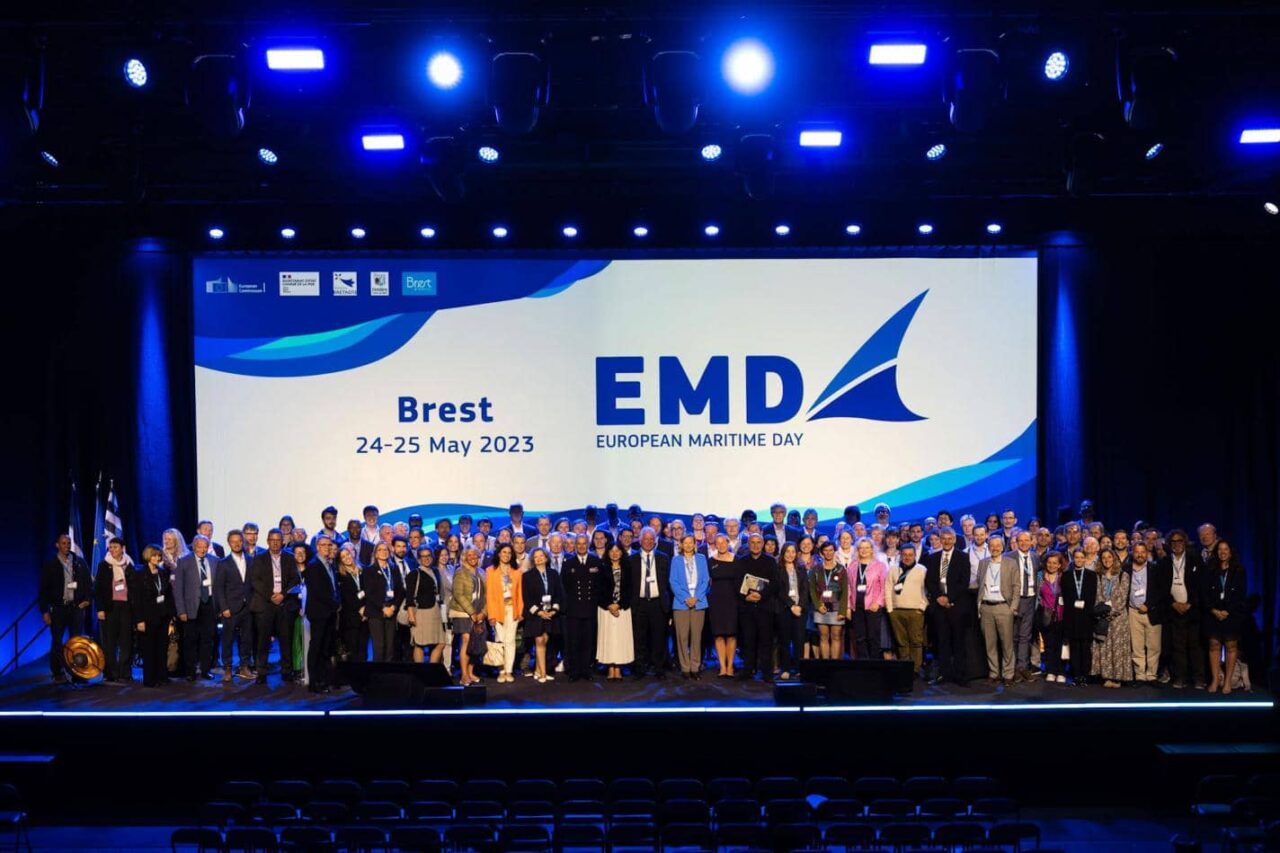You know a little about the current state of the seabed and you want to protect the seas? Then you are at the right place. European Maritime Day, it's on!

Yes, on this special European day (May 20, 2023), we wanted to remind you of some figures on the current state of Europe's seas, especially the Mediterranean (after all, it's the most beautiful, even if it's being mistreated today). And, above all, we wanted to give you a few tips on how to reduce plastic pollution at sea, because, after all, we're not here to get depressed.
Hep, hep, hep! Pause. Because we're nice people here at NOLT, we' ve written this article using expressions related to the sea (because European Maritime Day and all that...). So: read carefully, and when you've finished, feel free to comment on the number of expressions you've found.
And be careful, because in this game, NOLT is like a fish in water (oh, that's 1 there). Let's get started!
According to an article by the French Secretary of State for the Sea, European Maritime Day was created to remind us of the vital importance of the sea for coastal communities, as well as for every European citizen, whether in terms of environmental preservation oremployment.
Each year, an event is organized, and in 2023, it will take place in Brest, where it will bring together between 1,000 and 1,500 European maritime players.
At NOLT, we're from the south, so we have a soft spot for the Mediterranean Sea. So... Suffice it to say... it's not all plain sailing.
As you're no doubt aware, this sea is a particular victim of plastic pollution. In fact, according to a report published by the International Union for Conservation of Nature, quoted by Statista, 229,000 tonnes of plastic waste are dumped into the Mediterranean Sea every year- that's more than 20 Eiffel Towers.
And of all this waste, 94% is macroplastic and 6% microplastic.
We know that we tend to get a little excited when we think of the scale of the disaster. But don't get too excited, because we've got a list of individual actions right after this, so you can take action on your own scale.
...But it's true that, when you come from the south, the last straw is this: "a total of 344 species have been found trapped in plastic objects ", says a 2018 WWF report. So it's certainly more today. Incidentally, 65% of the animals trappedin theMediterranean were trapped bycommercial fishinglines, again according to the same report.
...Well, originally we didn't want to depress you too much, but that didn't work out too well.
According to a WWF article, the Mediterranean Sea accounts for just 1% of the world's maritime surface, yet is home to over 10,000 species, which must be preserved. It's incredible ❕
Well, it's pretty short, but we figure you might already be underwater, so we won't overwhelm you with information. In any case, you already know: there's a lot of plastic in the Mediterranean. That goes without saying. So let's take a look at a few small solutions, at your own level, to help reduce water pollution.
Before you start, please note that we are not scientists. In fact, we've written this section with the help of associative and statistical sources, which you can access via various clickable links. Our sole aim is to give as many people as possible some advice, because our company is eco-responsible, and because ecology is a value we wish to defend on a daily basis. On that note, we hope you enjoy reading. 😊
So, fortunately for us, the WWF has concocted a little recipe for curbing plastic pollution in the Mediterranean Sea, at least on our scale as citizens and consumers.
In fact, this is one of the measures recommended by the WWF. For example, instead of using plastic film to cover your leftovers, use the tupperware you already have at home to wrap them. And if you don't have one, use glass ones when you buy. Similarly, when you go shopping 🛒, use paper rather than plastic bags as much as possible.
Indeed, the association advises you to check whether your cosmetic products contain any form of plastic, such as polyethylene, polyvinyl chloride or polypropylene. That's right: use their plastic-free counterparts, which look just like them, but are eco-responsible.
Well, that's obvious, but we wanted to remind you anyway. And don't forget cigarette butts, which end up in the sea if you throw them away. The Centre d'Information sur l'Eau, quoted by the newspaper Ouest-France in an article, reminds us that a single cigarette butt can pollute 500L of water. So beware of sleeping water...
That's right, there are waste collections on beaches, as was organized on April 15 in the PACA region (even in small towns, we assure you!). So find out more, and take part in your first collection.

fish-related issues are also of the utmost importance (we were telling you about commercial fishing lines). Here's a page from the European Parliament and another from the Bloom association, which specializes in the sea(fish species to choose, labels, types of fishing to avoid... : you'll have everything you need).
And that's it! For more steps you can take to protect the oceans, such as consuming products made with recycled plastic from waste found in the Mediterranean, like SEAQUAL's, go straight to this WWF report, page 24.
So, how many expressions did you find?
